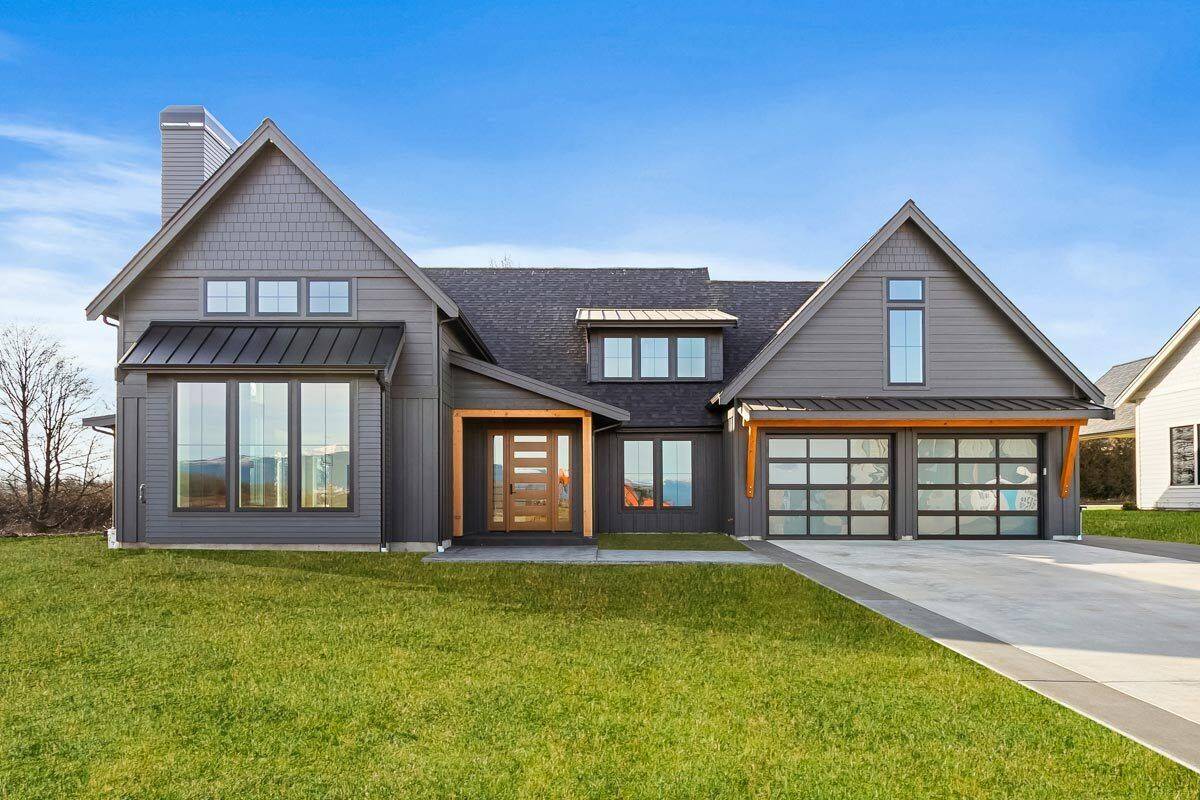
The journey of building and owning your first home is an exciting adventure filled with dreams and possibilities. 1.56 million new home construction projects broke ground in 2022, with many Americans choosing to build rather than purchase. As a first-time homeowner or home builder, you’re stepping into a world where creativity meets responsibility and where dreams meet blueprints. In this comprehensive guide, we’ll walk you through the crucial steps, from establishing a realistic budget to finding the perfect lot and navigating the complexities of financing. Let’s dive into the critical aspects of home building and ownership, ensuring your first venture is a smooth and successful one.
Establishing a Realistic Budget
Building your dream home begins with a realistic budget that covers all process aspects. Consider the following components when setting your budget:
a. Purchasing a Lot: Research the real estate market in your desired location. Factors like proximity to work, amenities, and future developments can influence land prices. Allocate a portion of your budget to acquire the right plot of land for your dream home.
b. Construction Costs: Consult with builders and contractors to get accurate estimates for construction costs. This includes materials, labor, permits, and any unforeseen expenses.
c. Landscaping: While often overlooked, landscaping is an essential part of home ownership. Budget for outdoor spaces, gardens, and any additional features you envision.
Pro Tip: Use our handy Budget Worksheets to ensure your construction project stays within budget!
Design Your Dream Home
Utilize experts in the home design industry such as our knowledgeable House Plan Advisors to source your dream home design. These professionals know the ins and outs of house design and can liaise with architects and builders on your behalf to save you fees. Consider the benefits of using a home designer to assist with:
a. Bringing Your Vision to Life: Architects and designers are skilled professionals who can translate your ideas into architectural house plans. They have the expertise to balance aesthetics with functionality, ensuring that your dream home is not only beautiful but also well-suited to your needs. Online house plans like the ones you can find at The House Designers, offer thousands of house plans to choose from that can be easily modified to fit your specific needs or lot. These home plans were designed by top rated architects and designers and offer creative solutions and floor plans that you might not have considered on your own.
b. Navigating Building Codes and Regulations: Builders are well-versed in local building codes and regulations. They can guide you through the permitting process, ensuring that your design complies with all necessary requirements. This expertise can save time and prevent potential setbacks during construction.
c. Creating a Cohesive Design Aesthetic: Architects and designers work to create a cohesive design that harmonizes different elements of your home. From choosing materials to coordinating color schemes, their input ensures that every aspect of your home contributes to a unified and aesthetically pleasing whole.

Finding Financing
Securing financing is a critical step in making your dream home a reality. Consider the following tips:
a. Mortgage Options: Explore various mortgage options for first-time homebuyers. FHA loans, conventional mortgages, and other programs may offer different terms and rates depending on your credit score and situation.
b. Credit Score: Your credit score plays a significant role in securing favorable financing. Check your credit report, and if needed, take steps to improve your credit score before applying for a mortgage. Ideally, you should check your credit report at least several months before you plan to apply for a mortgage. This will give you enough time to address any issues that may be negatively impacting your credit score and take steps to improve it.
c. Down Payment: Determine how much you can afford as a down payment. A 20% down payment has traditionally been considered a standard benchmark for avoiding private mortgage insurance (PMI) and securing better loan terms, however; there are various mortgage options available that allow for lower down payments which may be advantageous for first-time homebuyers.
d. Pre-Approval: Get pre-approved for a mortgage to understand your borrowing capacity. This can also make you a more attractive buyer when negotiating with sellers. To be pre-approved, you’ll be required to show documentation such as proof of income and assets, credit and debt information, residence history, ID, and proof of your down payment.
Finding the Right Lot/Property
Selecting the right lot is a crucial decision that impacts the overall design and functionality of your home. Consider the following factors:
a. House Plan Compatibility: Different house plans complement various types of lots. Consult with architects or designers to ensure your chosen house plan aligns with the characteristics of the lot.
b. Topography: Examine the topography of the land. Sloping lots, for example, may require specific construction considerations. Choose a lot that suits your desired home design and aligns with your lifestyle.
c. Utilities and Infrastructure: Check for the availability of essential utilities such as water, electricity, and sewage. The cost of connecting to these services can vary based on the lot’s location.
d. Acreage Considerations: If you’re considering larger acreage, be aware of additional responsibilities. Check zoning regulations and consider factors like maintaining access roads, electricity installation, and water supply for more remote locations.
Taxes and School Considerations
Understanding the tax implications and considering schools if you have or plan on having children are important aspects of home ownership.
a. Property Taxes: Research the property tax rates in the area. Consider how property taxes may change over time and how they fit into your overall budget. Property tax rates can vary widely from one location to another. Even within the same state or county, different municipalities may have different tax rates. Checking the specific rates for the area where you plan to buy ensures you’re aware of the local tax implications.
b. School Districts: Evaluate the quality of local schools if you have or plan to have children. Access to good schools can impact the value of your property and the overall quality of life. The reputation of the local school district can impact the resale value of your home. Homes in areas with highly regarded school districts tend to be more attractive to prospective buyers, potentially increasing property values over time.
Proximity to Places You Frequent
Consider the convenience of your home’s location in relation to places you frequent, such as work, shopping centers, and recreational areas.
a. Commute: Assess the daily commute to work and other essential places. A convenient location can enhance your overall quality of life and save you time and money.
b. Amenities: Proximity to amenities such as grocery stores, healthcare facilities, and recreational areas should be factored into your decision-making process.
Building and owning your first home is a significant milestone, and with careful planning, it can be a rewarding experience. By establishing a realistic budget, designing your dream home, securing financing, finding the right lot, and considering important factors like taxes and school districts, you’re setting the foundation for a successful homeownership journey. Remember, your dream home is not just a structure; it’s a reflection of your lifestyle, aspirations, and the place where countless memories will be made. Happy home building!
If you need assistance throughout your home building journey, we’d be happy to help! Simply live chat, email, or call 866-214-2242 to speak with an expert House Plan Advisor today!
- House Plans for Holiday Entertaining - December 1, 2024
- Garages with Living Spaces: Stylish, Functional, and Perfect for Modern Living - November 18, 2024
- Virtual Walkthrough of the Charming Traditional Country Farmhouse - October 30, 2024


